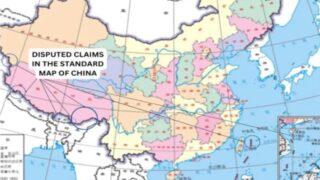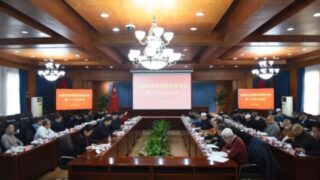In 2021, China is replacing Russia as #1 organized spreader of QAnon material online.
by Massimo Introvigne


QAnon is not a movement nor, as some say, a “cult.” It is a repository of conspiracy material, which is then spread to millions of readers through the Internet. After Twitter took more decisive action to remove QAnon-related posts, Facebook acknowledged to be the main conduit for the QAnon material, and that those reading it on the social network are indeed in the millions.
But who promotes QAnon on Facebook? There is not a single answer, nor an evil “puppet master” masterminding the QAnon operation there. The success of QAnon is due to the fact that thousands of individuals and small groups, most of them not organized, spread its material. However, increasingly, the FBI and other American agencies have alerted that foreign countries are also active in this field. And they are organized spreaders, with a method, a strategy, and economic resources. Their activities accounted in 2020 for 19% of the QAnon-related propaganda on Facebook, and are now rising beyond 20%.
These activities are analyzed in a White Paper by The Soufan Center, a respected counter-terrorism and national security research firm based in New York, released on April 19, 2021.


The report is rich in technical details, but a main conclusion is that China is replacing Russia as the main agent active in amplifying QAnon narratives on Facebook. These posts do not come from private Chinese citizens (Facebook is officially banned in China) but from state-related actors.
“In 2021, China is the primary foreign actor touting QAnon-narratives online,” The Soufan Center concludes. It was Russia before. “In 2020, 44% of posts came from administrators in Russia, 42% from China, 13% from Iran, and 1% from Saudi Arabia. While Russian administrators dominated the foreign influence space within online QAnon narratives in the first half of 2020, China began to rapidly expand its disinformation campaign by March of last year.” The reasons are connected with China’s concern about controlling narratives about the origins of COVID-19 and the repression of Uyghurs in Xinjiang.
Concerning the Facebook promotion of QAnon narratives, in 2021 “58% of posts came from administrators in China—at more than double the rate of those from Russian administrators.” China tried to learn from Russia and mimic what Russians do. It is also possible that China and Russia cooperate in the promotion of QAnon. “China’s disinformation capability has matured since 2019 and reliance on this asymmetric tactic has increased exponentially.” Additionally, “China’s apparent prominence in the QAnon space could also indicate that social media platforms are not equally well-versed in identifying disinformation campaigns of Chinese origin, compared to those from Russia. And because China controls its information environment, Beijing does not consider itself vulnerable to a tit-for-tat escalation in this area with the U.S. or other Western democracies.”
Not all, and indeed not most, messages promoted by the Chinese on QAnon refer to China. The Chinese pro-QAnon operation’s purpose seems to be more to sow discord and promote forces hostile to democracy within the United States and other democratic countries.
The Soufan White Paper is important because QAnon is normally studied as a quintessential American phenomenon, now exported internationally. This is largely true. But the magnitude of the efforts made to promote QAnon conspiracy narratives cannot be adequately understood without considering the role of foreign state actors. One out of five messages amplifying QAnon narratives on Facebook (the main vehicle for disseminating the QAnon ideology) comes from them. And among these state actors, China is number one.









